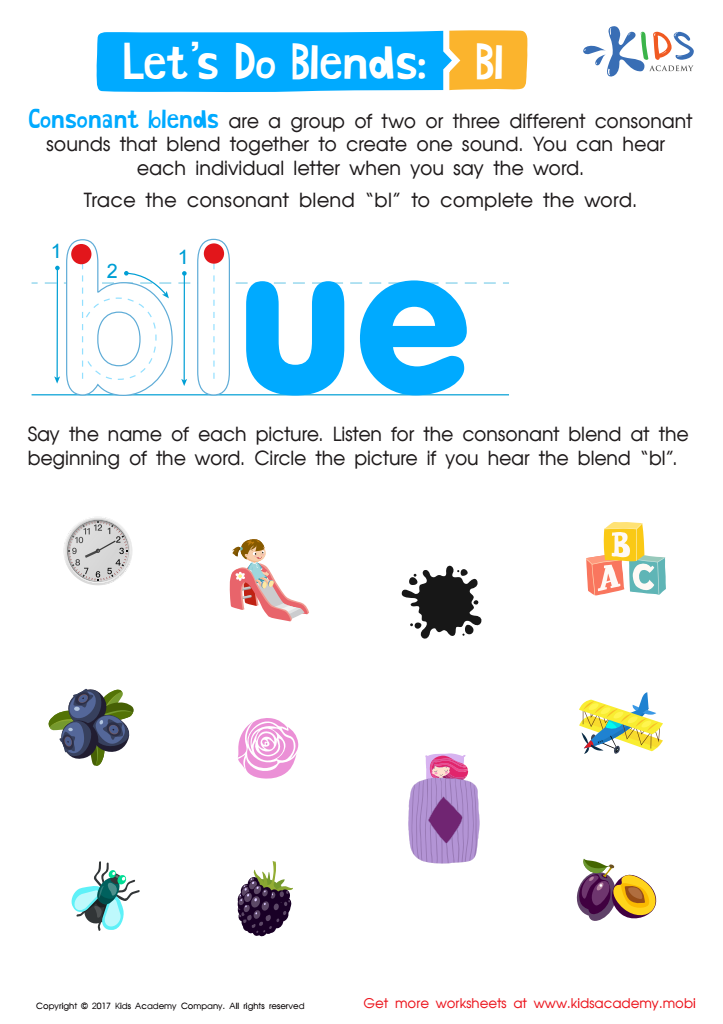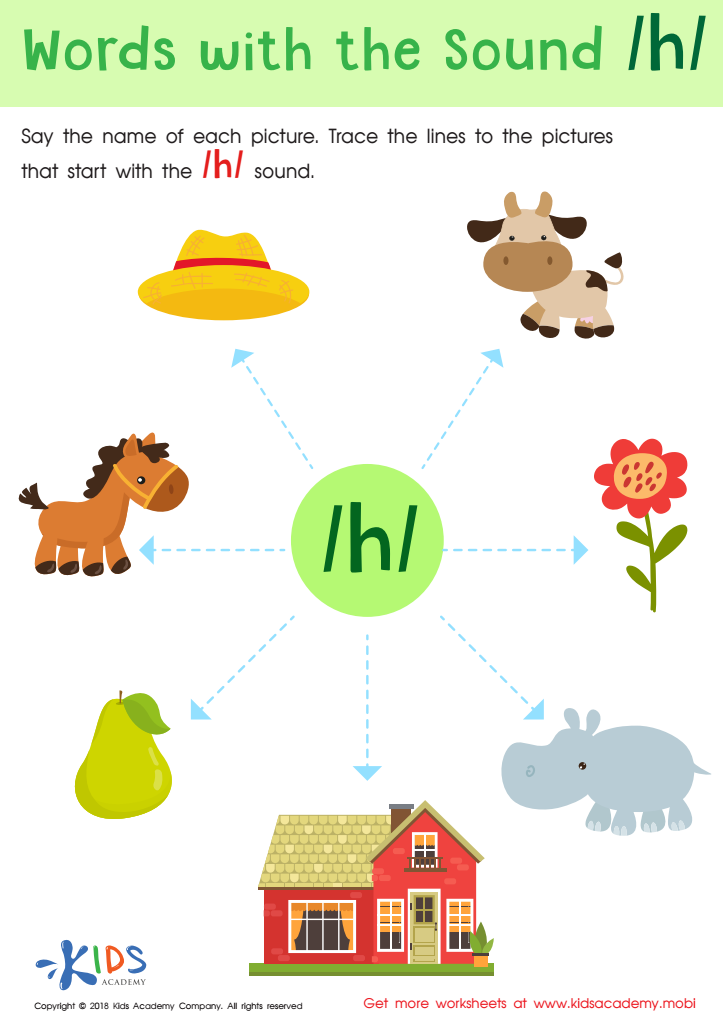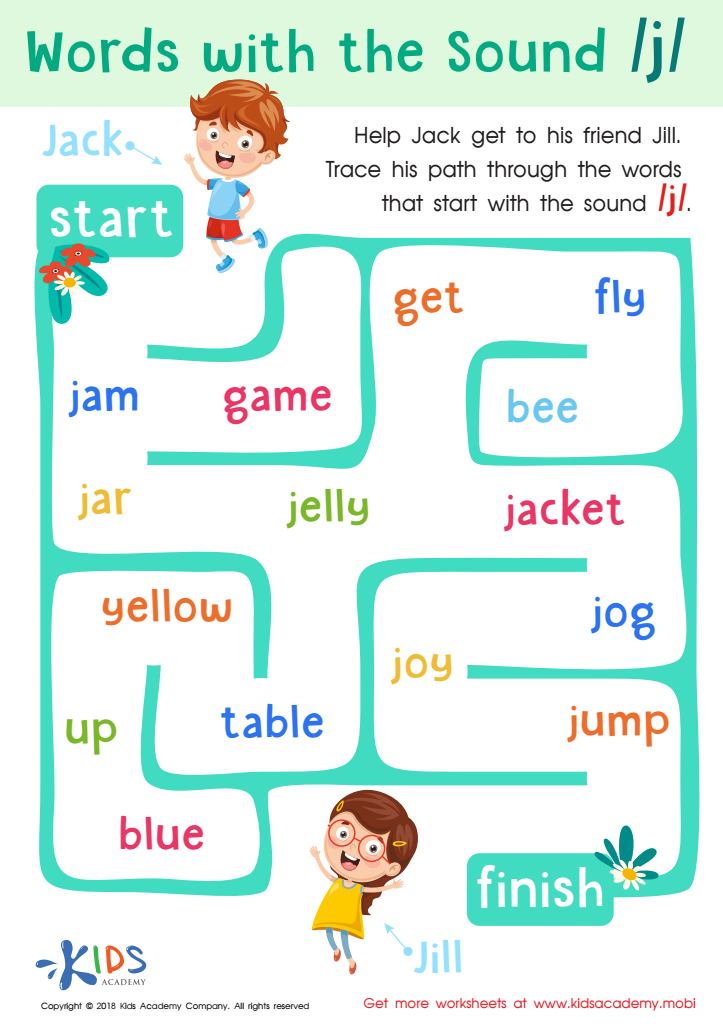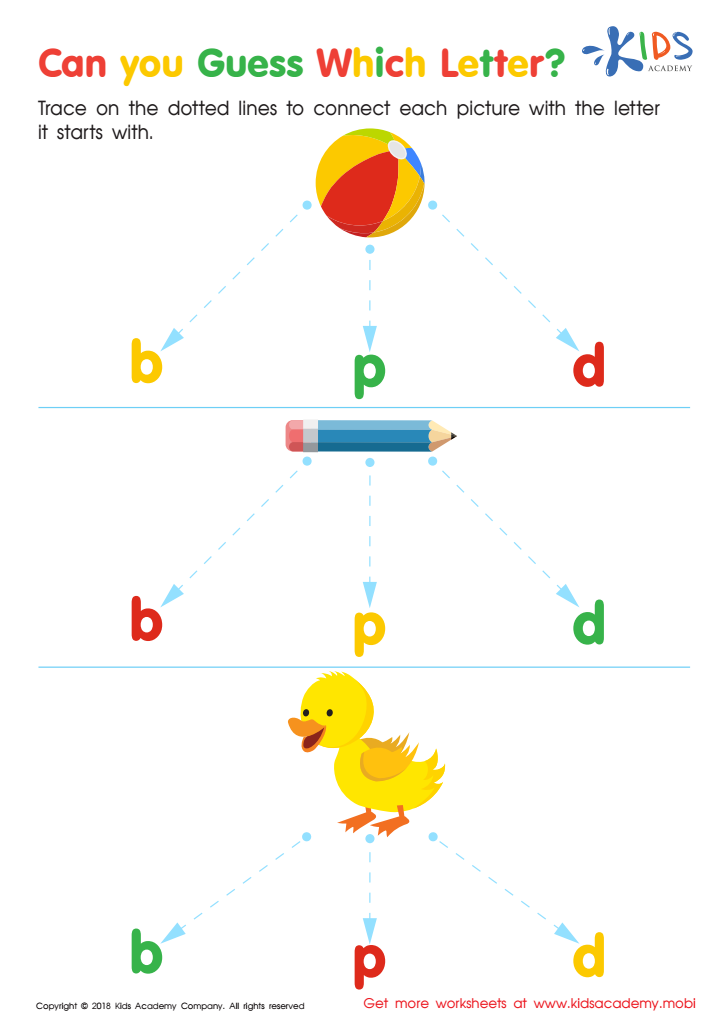Vocabulary expansion Beginning Sounds Worksheets for 6-Year-Olds
5 filtered results
-
From - To
Enhance your child's vocabulary and phonetic skills with our Beginning Sounds Worksheets designed for 6-year-olds! These engaging and colorful worksheets focus on expanding vocabulary through fun activities centered around initial sounds. By recognizing and associating beginning sounds with familiar words, children will build strong phonemic awareness, a crucial foundation for reading success. Our interactive exercises stimulate critical thinking and ensure that learning remains enjoyable. Ideal for homeschooling or classroom settings, these worksheets provide essential practice that nurtures a love for language. Explore our collection today and watch your child's confidence soar as they master beginning sounds and expand their vocabulary!


Beginning Blends: "Bl" Words Worksheet


Words with sound h Reading Worksheet


Words with sound j Reading Worksheet


Can you Guess Which Letter? Worksheet


Words with sound f Reading Worksheet
Vocabulary expansion through understanding beginning sounds is crucial for 6-year-olds as it lays a foundation for reading and language development. At this age, children are rapidly acquiring language skills, and grasping beginning sounds helps them decode words and improves their phonemic awareness. This awareness is key in helping children recognize that words are made up of individual sounds, enhancing their ability to read and spell.
When parents and teachers promote vocabulary expansion and emphasize beginning sounds, they cultivate a child's confidence in reading and communication. Engaging with words—through games, storytelling, and daily conversations—nurtures a child's interest in language, promoting a love for reading. This groundwork not only aids in achieving academic success but also equips children with essential communication skills needed in social interaction.
Moreover, enriching a child’s vocabulary paves the way for critical thinking and expression. A robust vocabulary enables children to articulate their thoughts and feelings clearly, forming stronger connections with peers and adults. Consequently, focusing on vocabulary and beginning sounds plays a pivotal role in shaping well-rounded, literate individuals who are prepared for future learning challenges and social engagements. In conclusion, parents and teachers should prioritize these skills to support holistic development in young learners.
 Assign to My Students
Assign to My Students















